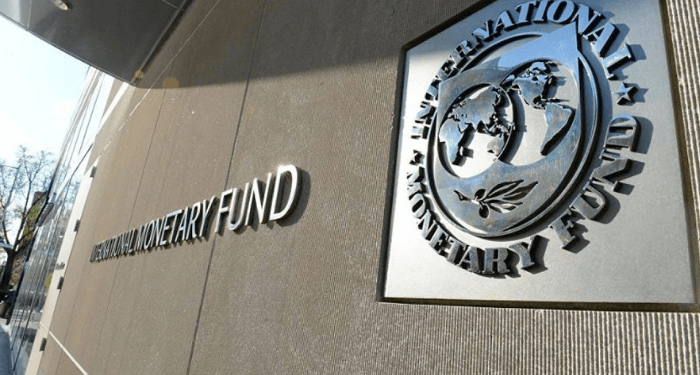Embracing and Enhancing IMF’s Governance Conditionalities To Fight Corruption
Today’s guest post is from Beauty Emefa Narteh, the Executive Secretary at the Ghana Anti-Corruption Coalition, and Leslie Tsai, General Counsel at the Chandler Foundation and lead for the organization’s efforts to support good governance, increased transparency and accountability, and robust international and national integrity ecosystems
IMF bailouts of countries in financial distress often come with unpopular strings attached—strict conditionalities related to fiscal policy that often force countries to make deep spending cuts and to increase taxes on food, healthcare, and fuel. These painful austerity measures have often proved counterproductive, plunging countries into recession and sparking anti-government riots and protests.
But while IMF conditionalities have gotten a deservedly bad reputation, a relatively new category of IMF conditionalities, focused on governance reforms, presents the 3.3 billion people living in countries swept up in the current global debt crisis with something precious: hope and the possibility of a true pathway to financial stability. The IMF’s expanded the use of governance-related conditions is a based on a belated acknowledgement of a point that civil society leaders and anticorruption champions around the world have long emphasized: that governance issues are as macroeconomically critical as fiscal policy, and that when corruption bloats and distorts government spending, a narrow focus on economic policy alone will be insufficient to pull countries out of chronic economic crisis. Notably, the IMF’s governance conditionalities are far more popular among ordinary citizens than their standard austerity measures. This is not only because corruption is widely seen as a scourge that most heavily burdens the poor, but also because anticorruption systems that protect government coffers can blunt the need for cuts to social spending over the long term.
The IMF’s governance conditionalities provide a powerful if imperfect tool for savvy civil society leaders who have long advocated for increased government accountability and stronger anticorruption systems. When governments are in discussions with the IMF about bailouts, domestic civil society groups in those countries can use this opportunity to press for much-needed progress on anticorruption.
Civil society groups in Ghana were among the first to adopt this strategy. Ghana, which is now receiving its seventeenth IMF bailout since independence in 1957, illustrates the urgent need for robust governance reforms to play a prominent role in the IMF’s process.
In 2014, when Ghana’s government approached the IMF for its sixteenth bailout, civil society organizations across the country working on social accountability, anticorruption, and governance issues joined forces and engaged with the IMF in high-level meetings, where they explained that Ghana would remain trapped in a debt cycle if the IMF didn’t push the government to address ongoing governance issues. These civil society leaders called on the IMF to include transparency and accountability measures as prerequisites for the disbursement of funds. For example, they urged the IMF to insist on public financial management reforms that included regular public audits and freedom of information legislation to ensure that, going forward, citizens could demand to know what the government is doing with taxpayer money.
When the IMF approved a $918 million bailout for Ghana in 2015, the agreement did include a provision calling for a preliminary public financial management act (as well as some of the other items civil society had asked for, such as the protection of some pro-poor and pro-development spending), but unfortunately the IMF did not address any of the other transparency and accountability requests from civil society. It therefore came as little surprise to Ghana’s civil society leaders that a few years later, Ghana again found itself on the verge of bankruptcy and in need of yet another IMF bailout.
The bailout negotiations that began in 2023 have been much more encouraging. Once again, Ghana’s civil society leaders are calling for governance conditionalities to be part of any bailout agreement. And this time, there’s more cause for optimism, because in 2018, the IMF updated its governance framework to support the design and target of specific conditionalities related to governance and anticorruption reforms. These conditionalities are now more commonly included in loan agreements on a case-by-case basis. While the IMF still does not see itself as an anticorruption organization, the new conditionalities acknowledge that corruption undermines long-term macroeconomic growth and has direct relevance to economic stability. The current bailout negotiations are not yet complete, and Ghana has not yet released a comprehensive assessment of recommended governance reforms, but right now the signs are encouraging. And Ghana is not unique: IMF governance conditionalities have resulted in significant progress in, for example, government transparency in Zambia and anticorruption legal reforms in Sri Lanka.
While the IMF is to be commended for its progress on this issue, there is still room for improvement.
- First, although some countries, including Ghana, go through a comprehensive governance diagnostic evaluation as part of the bailout negotiation process, this is not currently a requirement that the IMF insists on—rather, the assessment must be requested by a government. In the case of Ghana, the IMF and civil society pushed the government to request it, and succeeded, but other governments are more resistant and bypass the governance assessment altogether.
- Second, even in cases where the IMF has conducted a governance assessment and included governance-related benchmarks and conditionalities in its agreements with governments, they are typically not included as “preconditions” for IMF funding. Instead, they are included as soft recommendations which governments have been free to ignore. And even when governance-related benchmarks and conditionalities are included in bailout agreements, compliance rates are low. (From 2019-2021, compliance rates ranged from 10% for rule of law benchmarks and 22% for anticorruption benchmarks.) The IMF should insist on stricter governance related conditionalities, and also insist on compliance.
- Third, the IMF should provide a clear formal pathway for civil society to provide input into its negotiations with government, particularly with respect to developing appropriate governance conditions. Civil society is a highly motivated partner with unique capacity for helping to implement and monitor these forms, as well as for reporting evidence of impact.
While the IMF process remains imperfect, we nonetheless laud the Fund for its progress in this area, and we encourage anticorruption advocates to see the IMF as a potential partner. They should engage with the IMF and influence and inform the IMF process to ensure that conditionalities strategically address systemic governance weaknesses to put their country back on a healthy trajectory. Similarly, funders who support anticorruption work should support civil society groups’ efforts to influence and inform the IMF conditionalities process, and to help ensure that IMF recommendations and conditionalities are actually being implemented on the ground.
Despite the checkered history of IMF conditionalities, the IMF’s newfound focus on governance-related conditionalities has the potential to help many countries finally escape the continuous debt cycle. This is an important tool that can and should be used more, and more aggressively.








